Tooth decay is a serious issue that causes more mineral loss and requires fillings. As the teeth are not properly cared for, enamel becomes weak and prone to cavities. Cavities occur when holes form in the teeth and must be filled to prevent further damage. The risk of developing cavities increases when people do not take good care of their teeth and eat foods high in sugar or starch. People at risk for tooth decay include babies and toddlers who drink from bottles and are constantly exposed to sugary and starchy foods. Even juices, sugary drinks, and other types of soft drinks can cause tooth decay in children.
Signs of tooth decay
Tooth decay has many symptoms and early detection is critical to the best treatment. In the early stages of the disease, you will notice white areas on the surface of your teeth, which are indicative of the buildup of plaque and loss of calcium in the tooth. As a result, the enamel under the tooth surface begins to weaken and is at risk of chipping or breaking. Hence, you should seek immediate dental treatment if you notice any of these symptoms.
Pain in the mouth is a common symptom of tooth decay. When you bite into something, it may cause a sharp or mild toothache. This symptom can be caused by decay if the affected tooth is damaged to the pulp. It is important to see a dentist if you experience constant or random sharp pains while eating or drinking. Toothache can be an early sign of tooth decay. However, the early signs of tooth decay can be avoided by applying fluoride and sealants to your teeth.
You may notice a hole on the surface of your tooth. It is possible to feel a hole when brushing or flossing your teeth. Another common symptom of tooth decay is bad breath. Bacteria in your mouth can cause bad breath. Drinking a lot of sugary and starchy food can also lead to cavity formation. For this reason, it is crucial to visit a dentist as soon as possible. Once you have noticed the symptoms of tooth decay, you should immediately seek dental treatment to prevent further damage.
Tooth decay is caused by the buildup of bacteria on the teeth. The bacteria in plaque cause acids to attack the enamel of your teeth and create cavities. Tooth decay symptoms will become more severe as the disease progresses. A visit to the dentist is the best way to prevent tooth decay. If you don't treat the problem early, you may not even realize that it exists. If left untreated, cavities can turn out to be expensive to repair.
Symptoms of tooth decay include white spots on the teeth, which progress to a hole or pit in the tooth's surface. These symptoms may be visible in a mirror or felt with the tongue. Some types of cavities may be too advanced to be seen, but still warrant a visit to the dentist. To prevent cavities, you should practice good oral hygiene and avoid sugary or acidic foods. Your dentist will be able to detect and treat any cavities that might be present in your teeth.
If you've noticed these symptoms, you should schedule an appointment with a dentist right away. Tooth decay is caused by bacteria that live on the teeth. When plaque mixes with the foods we eat, it forms plaque that combines with acids to erode the enamel of the teeth. This plaque then hardens into tartar. It also irritates the gums and leads to gum disease. If you don't treat the problem on time, you will develop painful gums and teeth.
Treatments for tooth decay
A dentist may recommend one of two types of treatment for tooth decay, depending on the severity of the problem. Depending on the severity of the problem, a dental crown or root canal may be necessary. Crowns cover the entire tooth, providing protection and restoring chewing ability. Porcelain or metal crowns are used in cases of major tooth decay, while root canal therapy involves removing the infected dental pulp and filling the space left by it with a special substance. A dental crown is then used to cover the tooth and provide a natural look.
Tooth decay is caused by bacteria that live in the mouth, known as plaque. The bacteria in plaque feed off the sugars found in food and produce acids that attack the tooth for about 20 minutes. This process erodes the tooth's enamel, making it prone to cavities. People who have poor oral hygiene may experience an increased risk of tooth decay. Frequent vomiting, for example, exposes the teeth to stomach acids, which damage tooth enamel.
When a cavity develops, it's important to act quickly. Fortunately, most cavities can be prevented and treated with fluoride treatment. Fluoride helps repair damaged enamel, and a dentist can fill cavities with it. But even when a cavity is not visible, fluoride is a good option. In addition to fluoride treatments, a dentist may recommend a fluoride mouthwash and toothpaste to help prevent cavities.
Regardless of the type of tooth decay, you may have, the best way to prevent cavities is to practice good oral hygiene habits. Brushing your teeth at least twice a day and flossing regularly are all key to preventing and curing tooth decay. In addition, regular dental exams will allow your dentist to detect cavities early when they are much easier to treat. The best treatments are those that preserve the natural structure of your teeth. These procedures may be necessary, but they are not necessary for every case.
In cases of early cavity formation, a dentist may apply a fluoride treatment to your teeth. Fluoride strengthens the tooth's enamel, making it more resistant to acid. In some cases, the dentist will remove the pulp from the tooth, restoring it with a partial denture, bridge, or dental implant. But it's never a good idea to go ahead and treat the problem with a root canal.
Tooth decay causes an ache. If left untreated, it can lead to infection. Your dentist may recommend a mouthwash to reduce the acidic effect of food, or filling material. Fluoride-based filling materials can also be helpful. If you have already had a filling, it will not be difficult to prevent tooth decay around it. A filling, however, can be ineffective for preventing tooth decay elsewhere.
Fluoride
Did you know that fluoride prevents tooth decay? Fluoride is a naturally occurring mineral that can be found in our soil, food, and some water sources. Fluoride prevents tooth decay by strengthening the enamel that protects teeth. It does this by turning existing tooth enamel into a substance called fluorapatite. This substance is less soluble in acid and can prevent cavities by delaying the onset of tooth decay.
Fluoride is an essential mineral for the health of your teeth, and it's found in many natural sources, including the water you drink. Fluoride is absorbed into the bacterial cell and inhibits its ability to produce acids and consume sugars. Fluoride also helps the body reverse the process of minor enamel decay by increasing the growth rate of the enamel crystals. This process begins to remineralize the tooth, and larger crystals are more resistant to acid attacks.
People who are at risk of developing tooth decay may need to drink a fluoride mouth rinse, or they may require a special fluoride treatment at the dentist. Getting regular checkups and cleanings from a dentist is also recommended. Visiting the dentist twice a year is the best way to prevent future problems and spot early signs of decay. As a member of the Eco-Dentistry Association, Dr. Niles rides a bicycle to work and offers a discount to cyclists.
While the benefits of fluoride in the mouth are well known, it's important to know exactly how it works. Fluoride is necessary for teeth to form under the gums, and after they erupt, it continues to keep teeth strong. Studies have shown that drinking water with fluoride in it can reduce the incidence of tooth decay by 25%. That's an incredible result! This mineral also plays an important role in strengthening the teeth of children who live in areas without fluoridation.
In fact, fluoride is an essential part of dental health, and pediatricians are unique resources for fluoride varnish application. The American Academy of Pediatrics has recognized pediatricians as an oral health resource and published updated recommendations on fluoride in their December 2020 issue of Pediatrics. According to the AAP, pediatricians should perform an oral health risk assessment on children during every well-child visit. Children should begin receiving dental treatment at six months old to reduce the risk of developing tooth decay.
While there are several factors that affect tooth decay, fluoride can help to protect teeth from cavities by promoting remineralization and stopping the breakdown of tooth enamel. Fluoride is a natural mineral, and it is found in all water sources. Fluoride prevents tooth decay by improving tooth enamel's resistance to acid. This mineral is also helpful in rebuilding tooth enamel that's been damaged by too much acid from bacteria.
Sources:

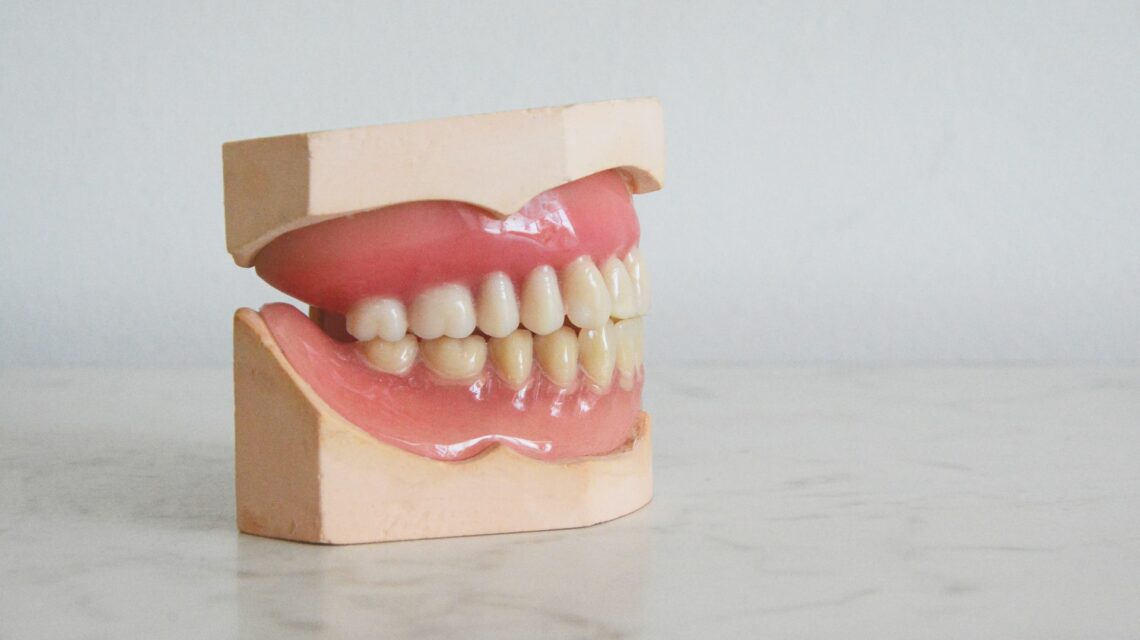

 The Diversity of Mouth Bacteria and the Role of Oral Hygiene
The Diversity of Mouth Bacteria and the Role of Oral Hygiene 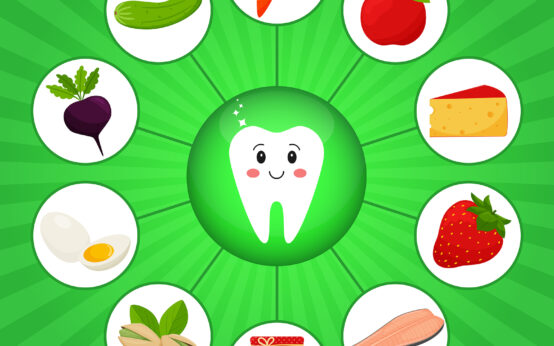 Healthy Teeth and Gums
Healthy Teeth and Gums 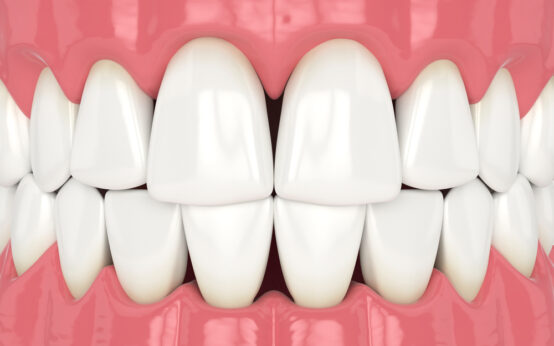 Which is the Best Way to Whiten Teeth at Home?
Which is the Best Way to Whiten Teeth at Home? 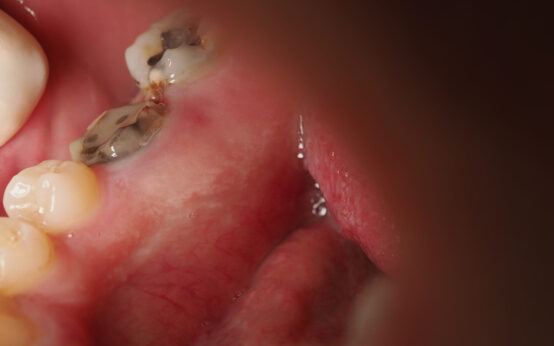 Tooth Decay – Causes and Prevention
Tooth Decay – Causes and Prevention 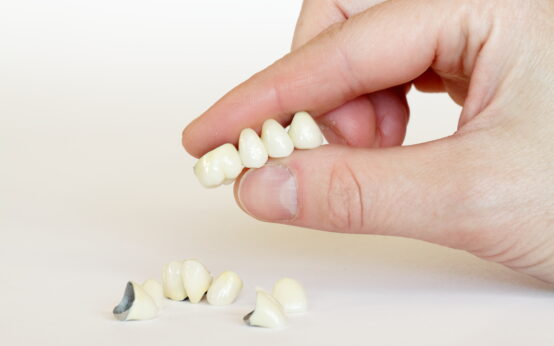 Tooth Crown Materials
Tooth Crown Materials 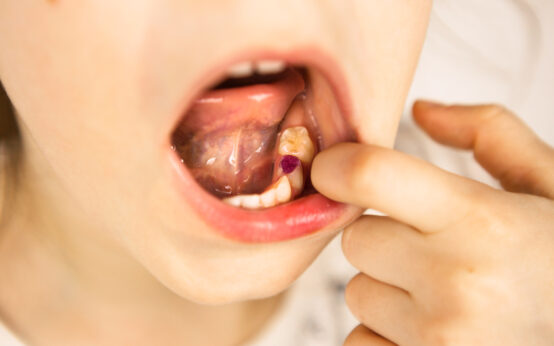 Pain in Your Bottom Teeth? Here’s How to Cure Crowding on the Bottom Teeth
Pain in Your Bottom Teeth? Here’s How to Cure Crowding on the Bottom Teeth